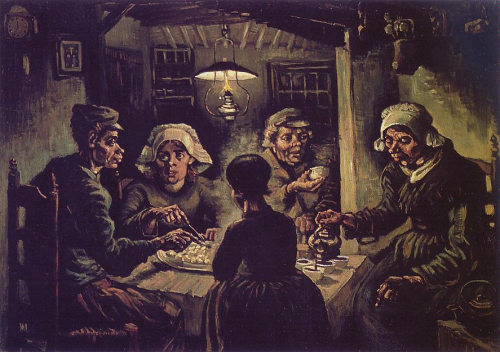As the F train ran under the river into Brooklyn, I wiped my runny nose with a tissue and saw a spot of blood. By the time we pulled into Jay Street I had to plug the tissue into my nostril like caulk in a broken pipe. I get little nosebleeds sometimes, especially on cool dry winter days when I’m blowing out mucus every 15 minutes, but this was getting ridiculous.
At Bergen Street I got off the train, lest I freak out the other rush-hour commuters with my non-clotting stream of blood-snot. I huddled next to a trash can with my head down as the blood soaked every inch of the only two tissues I had, and began to paint all my fingers a deep, slick red. The G train rolled in, passengers came off, many of whom walked right past me. Couple minutes later another F train, a minute later another G. Part of me hoped no one would notice me, and part of me was angry no one was stopping to offer me more tissues.
I was about to leave the station and start phoning friends who live in Carroll Gardens when a guy in his early 40s asked if I was OK. Apparently I was shaking. I honestly didn’t know when the blood would stop flowing. There was so much blood he thought maybe I’d sliced up a finger. When I told him it was just a nosebleed he invited me to his brownstone just a couple blocks over. For a second I thought I shouldn’t follow him home, but then I figured that a guy who offers help to a bloody stranger during rush hour *has* to be a good person, right?
His name’s Ted. Studied theater at SUNY Purchase in the early 90s, now works IT for Verizon. The way he remained so calm and warm despite all my blood, and more importantly, the way he kept *me* calm despite all my blood, I was surprised he’s not a nurse or an EMT.
The bleeding stopped by the time we got to his place. After I washed myself up, I stuffed some paper towels and cotton balls in the pockets of my hoodie for the ride home, just in case. Ted gave me a chilled bottle of Blu Italy sparkling natural mineral water, with orange, lemon, and pink grapefruit flavor. He said I should probably hydrate myself. (I’m drinking it now. It’s sublime.) Then I shook his hand, thanked him very much, and we parted ways.
So yeah, Ted from Carroll Gardens is a super-cool guy.

